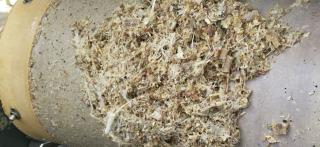
Industrial Stormwater Treatment at the Port of Tacoma
A five-vault, 133 module Up-Flo® Filter system helped the Port of Tacoma to remove stormwater pollutants, particularly TSS, zinc, copper and lead.
The Background
Washington State has some of the most stringent industrial stormwater treatment standards in the United States with exceptionally low benchmark requirements for zinc, copper and turbidity aka Total Suspended Solids (TSS) or sediment. Within the Port of Tacoma there are three industrial sites that were exceeding their benchmarks for variety of pollutants in their stormwater runoff.
The Challenge
The Port of Tacoma has spent $175 million dollars on wildlife habitat restoration and clean up after decades of metals and oil pollution landed them on the Federal Superfund site in 1982.
An administrative order gave all three of the industrial sites within the port until December of 2014 to have installed stormwater treatment systems to address their effluent discharge problem.
Conventional stormwater treatment solutions such as stormwater ponds and bio filters hadn’t been shown to remove the kinds of dissolved pollutants (particularly metals) that were proving to be the largest problem on site.
The Solution
A five-vault, 133 module Up-Flo® Filter was selected as one of three treatment systems specified by Kennedy/Jenks Consultants because of its proven ability to remove dissolved metals, particularly TSS, zinc, copper and lead.
The Outcome
Among other pollutants, the Up-Flo® Filter has been proven to reduce turbidity by 75% and remove 60% of total zinc while the system has been meeting its effluent discharge limits since installation.
Detailed performance results have been kept confidential, but a summary was included in the feature article of Stormwater Management (page 19) and Civil Engineering (subscription required) Magazines.
Visit the industrial microsite
Visit our dedicated microsite to learn more about how we can help industrial businesses to improve profitability, reduce downtime and meet regulations.





















